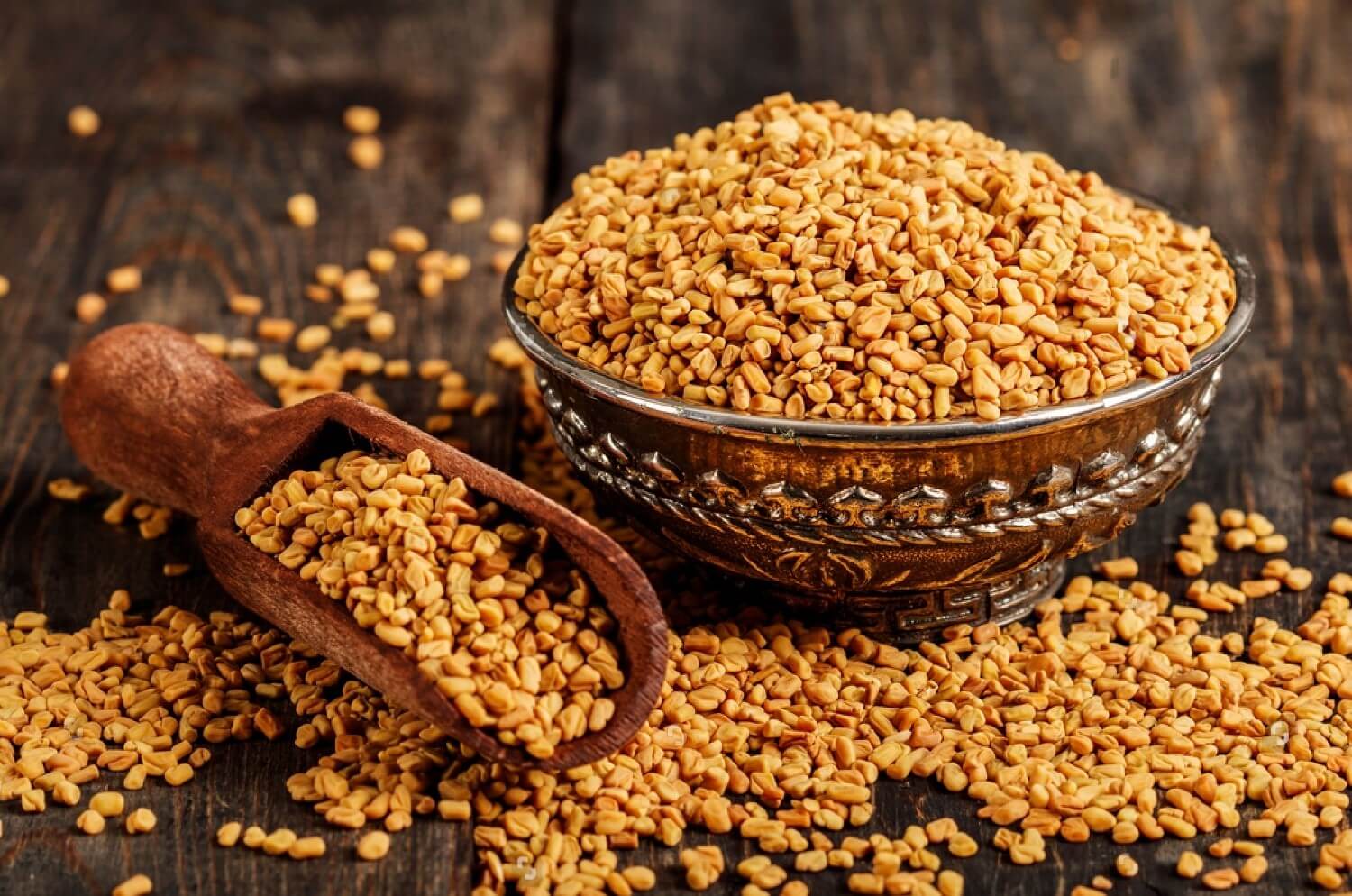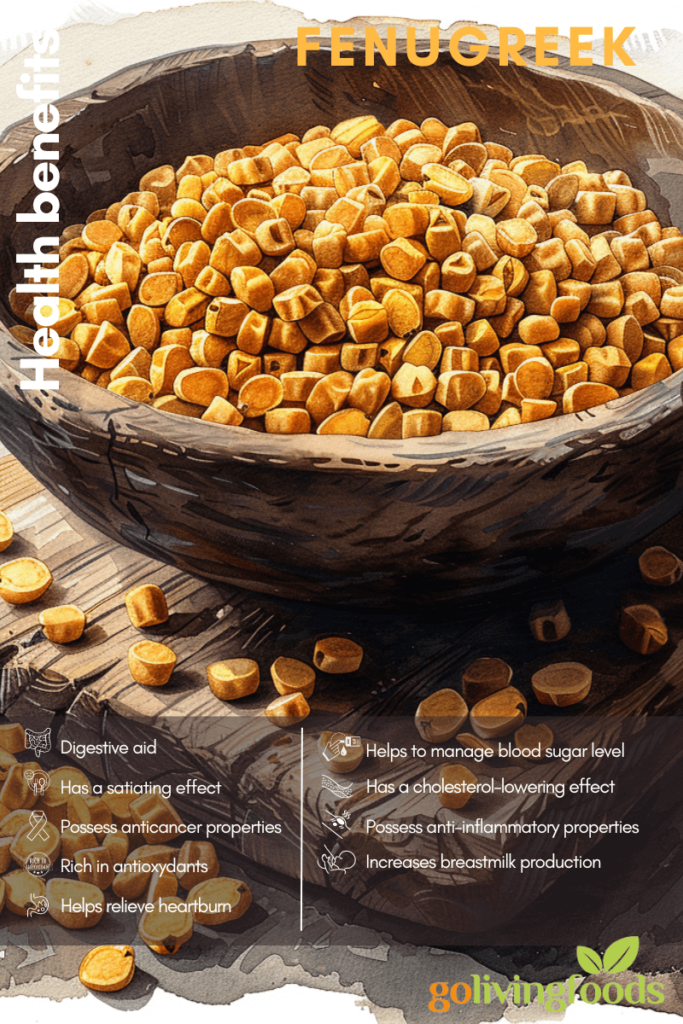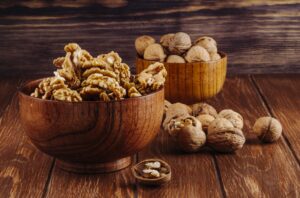The 10 Nutraceutical Properties of Fenugreek

Fenugreek has an age-old history as an alternative medicine ingredient. The amber-colored seeds are a commonly used spice that enhances the sensory quality of culinary cuisines.
Fenugreek seeds come from a leguminous plant widely cultivated in Northern Africa, the Mediterranean, India, and Canada. The plant has green leaves, white petite flowers, and pods that contain small, golden seeds.
Fenugreek is a traditional plant source of hydrocolloids that are extensively used in food, pharmaceutical, cosmetic, packaging, and other industries. The seeds produce one of the most soluble gums derived. That is why their extract exhibits strong thickening and emulsification properties.
Nutritional Information
The nutraceutical properties of fenugreek seeds are due to its rich nutrient content. Fenugreek seeds contain;
The leaves of the fenugreek plant contain;
Fenugreek seeds cater to a myriad of medicinal benefits, owing to its properties like;
The use of fenugreek seeds is mentioned in ancient Greek, Latin, and Ayurvedic medicine scriptures. Its use as an aphrodisiac, digestive, and respiratory relief element in supplements is highly suggested. Egyptians used the seeds in different forms to ease childbirth, increase milk flow in lactating mothers, and ease away menstrual cramps and other abdominal pains.
Here is a detailed insight into the fenugreek seeds’ nutraceutical benefits.
1. Blood Sugar-Lowering Effects
Fenugreek seeds have positive effects when it comes to lower blood sugar levels. It was seen that fenugreek consumption improved carbohydrate tolerance in healthy individuals. This is found useful in cases of type I and II diabetes.
A study included volunteers with type 1 diabetes. They took 50 grams of fenugreek seed powder at lunch and dinner. After about ten days, the participants experienced better blood sugar levels. Another study included people who did not have diabetes but took fenugreek leaf extract. Their blood sugar levels fell to 13.4% after four hours of intake.
Researchers link these blood sugar-lowering effects to the high dietary fiber content of the fenugreek seeds, of which 32% is insoluble and 13.3% soluble. The gum content of seed extract comprises mannose and galactose, which have a potent blood sugar lowering effect. The fiber content of fenugreek lowers the postprandial absorption of glucose. Some researchers believe that the nutrient content of fenugreek enhances the insulin sensitivity of cells.
2. Effects on Breastmilk Production
Fenugreek contains the hormone precursor required to increase sweat production. Since breasts are also modified sweat glands, the same holds for milk production. Drinks made out of Fenugreek seed may provide a safe alternative to medicines used for increasing breastmilk production.
In a 14-day study in 77 new mothers, researchers found that drinking herbal tea with fenugreek seeds increased breast milk production. A placebo-control trial researched three groups of mothers. One group received fenugreek tea, the second a placebo, and the third had nothing. The volume of pumped breast milk increased in the control and placebo groups from 1.15 ounces (34 ml). While it increased to 2.47 ounces (73 ml) in the fenugreek group.
3. Testosterone Enhancing Effects
Though the research is still in infancy yet, the results have been encouraging to pursue in this direction. Fenugreek has been a traditional ingredient to improve sexual endurance in ancient cultures. Research suggests that fenugreek seeds help improve testosterone levels in men. A study conducted in this regard showed that men who took a daily fenugreek supplement and followed a resistance-training showed enhanced testosterone levels and a 2% reduction in body fat.
Another piece of research specifically studied the effects of fenugreek supplements on libido. After a six week trial period, men who received fenugreek reported improved sexual endurance.
4. Effects On Appetite
Owing to its high content of dietary fiber, fenugreek seed as ground form, cater to a filling effect. A study examined the effects of 8 grams of fenugreek intake in 18 obese otherwise healthy people. The results showed that the volunteers had reduced appetite with a feeling of fullness that resulted in less food consumption in the next meal.
Fenugreek seeds have a fair amount of galactomannan, a kind of soluble fiber. It is seen that increasing fiber intake significantly reduces appetite and helps lose weight. Galactomannan is very useful in this regard. This soluble fiber absorbs water and becomes a viscous gel that passes unchanged into the large intestine. The process works by slowing gastric emptying, inducing a feeling of fullness, cutting back on calorie intake and weight loss. This aided by blood sugar and cholesterol-lowering effects, helps shed unwanted pounds.
5. Cholesterol-Lowering Effects
The cholesterol-lowering effects of fenugreek are attributed to its high dietary fiber content. A review of 12 randomized controlled studies found that fenugreek had cholesterol-lowering properties. The mechanism of action is the same. The dietary fiber absorbs water and cuts back on fat and sugar absorption from the gut. In another study, 83 overweight people underwent a significant reduction in body weight and fat after taking a supplement containing 3 grams of glucomannan and 300 mg of calcium carbonate for two months. Since fenugreek seed is a rich source of the soluble fiber glucomannan, it can be a good alternative as a weight loss supplement.
6. Benefits In Cases Of Heartburn
Heartburn is quite common. An alternative remedy is always better than allopathic medicine because it causes fewer side effects. A pilot study was conducted in which the participants with presenting complaints of frequent heartburns were supplemented with fenugreek fiber. Dosage was taken twice a day, 30-minutes before every meal. The results showed the severity of heartburn reduced, and the subjects had to resort less to antacid medicine. In fact, the relief provided by fenugreek fiber product was comparable to antacid Ranitidine. So if you suffer from occasional heartburn, go for a fenugreek dietary supplement.

7. Anti-Oxidant Activity
Our bodies produce free radicals as by-products of metabolic reactions. These free radicals cause Oxidative Stress that results in the initiation of the disease process. Many studies have shed light on the anti-oxidant activity exhibited by the fenugreek seeds. It is believed that a methanolic (Polyphenols) extract from the seeds is responsible for rendering these effects. An animal study showed the positive effects of such polyphenols. The polyphenols and Flavonoids of fenugreek seeds can quench the free radicals and be beneficial against many disease processes.
8. Anti-Cancer Effects
Fenugreek seeds extracts are known to exert anti-cancer activity. These include phytoestrogens and saponins. The saponins selectively inhibit cell division in cancer cells and initiate processes that lead to cancer cells’ cell death. An in vivo study carried out on rats was done where colon cancer was induced. The effects of an active compound in fenugreek powder, the diosgenin, was observed. It was observed that the crude extract and diosgenin was able to inhibit the formation of pre-cancerous foci in the colon. The anti-cancer potential of fenugreek seed was tested in vitro with human colon cancer cells. The same inhibitory effects of diosgenin on cancer foci were seen in addition to the cancer cell death induction.
9. Anti-Inflammatory Effects
Fenugreek seeds extract long been used as a traditional remedy for skin ailments. It reduces skin irritation of many origins as well as pain-relieving properties. The seed powder, when converted into a paste, promotes skin healing. It also has healing, moisturizing, smoothening, and whitening effects on the skin. The primary components responsible for the anti-inflammatory effects of fenugreek are alkaloids, saponins, and flavonoids.
Fenugreek seeds are shown to deliver anti-bacterial and anti-fungal properties. The aqueous extract of different plant parts in various solutions was tested against different fungus strains. The results were positive, with different parts of the fenugreek plant showing different strengths against different strains. Similarly, the seed extracts were found beneficial against Helicobacter Pylori. Its anti-inflammatory upshots regrading ulcerative colitis are documented.
10. Benefits as a Digestive Aid
Being highly nutritious, fenugreek seeds have therapeutic properties when it comes to our digestive system. It promotes digestion and absorption of nutrients. The extracts can improve hemoglobin levels and may help anemic patients. The aqueous and methanol extracts of fenugreek exert anti-diarrheal benefits.
Takeaway
Fenugreek seeds are Mother Nature’s miracle. The nutrient-rich plant has myriad of therapeutic upshots. The seeds, leaves and their various extracts play an important role in warding off disease states by upgrading the body functions in multiple ways.






